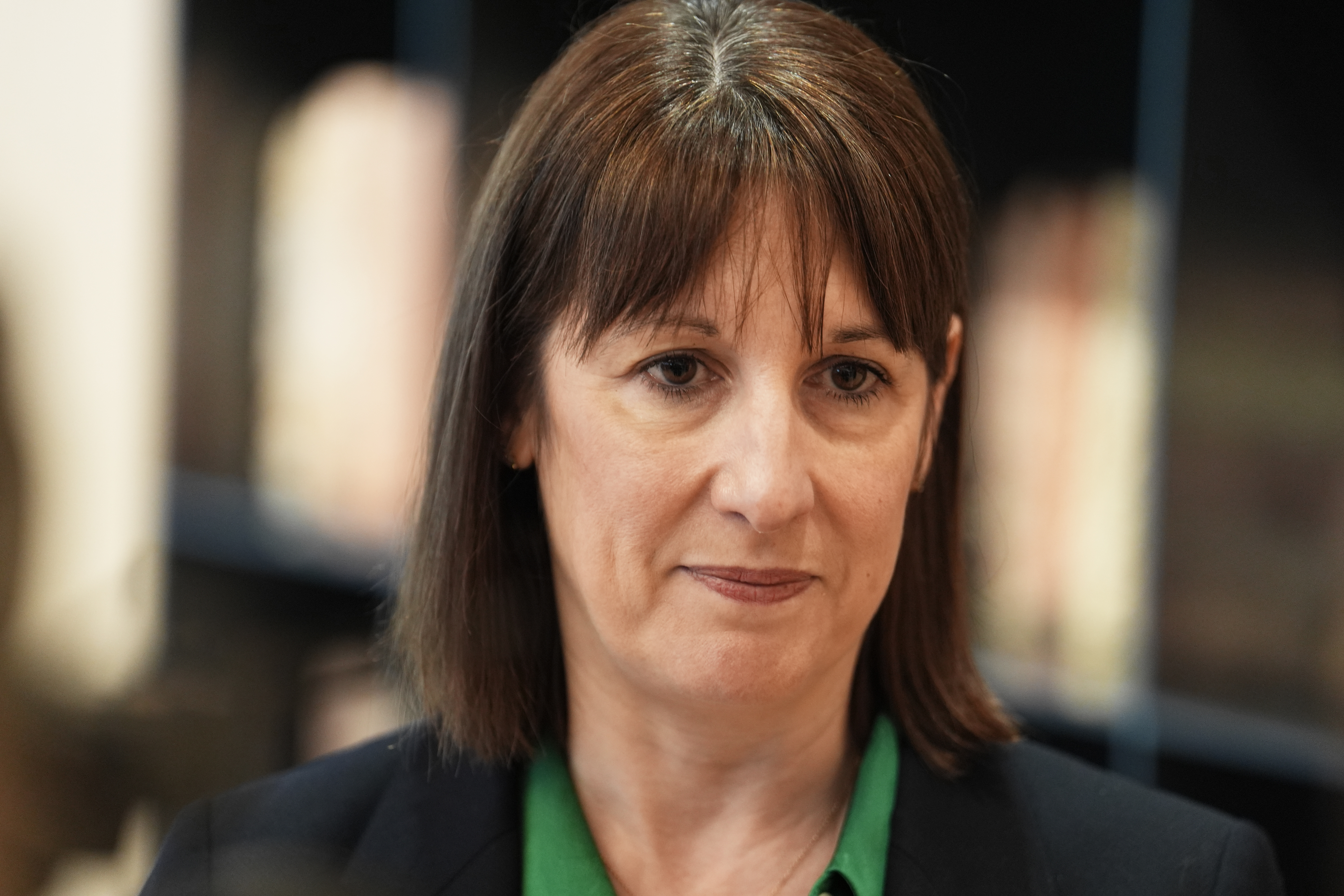“Rachel Reeves must not cut cash ISA limit to £4,000”
A £4,000 limit on the amount you can put in a cash ISA is an unnecessary attack on savers and should not be the priority, says Jessica Sheldon.


Get the latest financial news, insights and expert analysis from our award-winning MoneyWeek team, to help you understand what really matters when it comes to your finances.
You are now subscribed
Your newsletter sign-up was successful
Want to add more newsletters?
Soaring living costs have dented disposable income and frozen income tax bands (which is effectively a tax rise) only make it more difficult to save. Even when we can afford to set aside money for the future, improved interest rates and frozen tax allowances mean savers are at risk of being taxed on the interest.
Cash ISAs have become far more attractive in recent years for this very reason. Adult cash ISA balances increased by £38.5 billion between January and October 2024, compared to £9.5 billion for adult non-ISA accounts, according to consultancy CACI.
Thanks to the annual ISA allowance, savers have been able to save for short-term goals without worrying about being taxed on the interest.
Try 6 free issues of MoneyWeek today
Get unparalleled financial insight, analysis and expert opinion you can profit from.

Sign up to Money Morning
Don't miss the latest investment and personal finances news, market analysis, plus money-saving tips with our free twice-daily newsletter
Don't miss the latest investment and personal finances news, market analysis, plus money-saving tips with our free twice-daily newsletter
They’re a particularly important product right now, letting Brits shield up to £20,000 per tax year in savings from the taxman. HMRC data suggests £10.4 billion is expected to be generated from savings interest in the 2024/25 tax year, ten times the £1.4 billion raised in the 2021/22 tax year.
But cash ISAs could be under threat, as Rachel Reeves is reportedly being lobbied to put a £4,000 annual limit on deposits into this type of ISA, in hope that it would encourage investment in UK stocks instead.
Adding a £4,000 limit specifically for cash ISAs would mean Brits could only put a fifth of what they currently can into these tax-free savings accounts.
I think this would be a terrible move. It could cause a major headache for savers, who should have the right to choose to save rather than invest if they need or wish to.
Strong-arming people into stocks and shares ISAs is the wrong decision
Like many others, the importance of working hard and setting aside money for the future has been instilled in me from a very young age. I can still remember the joy when, having carefully saved up my pocket money each week, 50p at a time, I could finally afford a Sylvanian Families set which I had long-admired.
Fast forward to adulthood, and I’ve slowly but surely been squirrelling away part of my pay cheque into a top-paying savings account each month. I’ve been taught to save (and invest) rather than splurge – something I am very grateful to be able to do. No one forced me to follow these principles. Rather, I was coached and encouraged, and it became something I wanted to do for my future.
Creating a specific cash ISA deposit limit to strong-arm people into putting money in stocks and shares is the wrong attitude.
We shouldn’t be forced to put our savings anywhere. After paying tax and National Insurance, that hard-earned money is ours and it should be our choice as to what we spend it on or how we look after it. We’re old enough to earn an income – we don’t need the government to decide how we grow it.
Rather than removing the option to use the full tax-free allowance in cash ISAs, it would be far more effective to encourage people towards investing by improving financial education. There should be a greater focus on explaining the options that are available. Looking at the pros and cons of cash vs stocks and shares ISAs is a good starting point.
Understanding how inflation can erode savings is more likely to motivate people into reviewing their finances. For example, if someone invested £10,000 in a cash ISA in December 2012, they would currently have £11,955. Adjusted for inflation, this amounts to just £7,918, Quilter’s calculations show. Getting people to understand this would be more effective than a politician enforcing an arbitrary limit on cash ISAs.
A £4,000 cash ISA limit could hurt property market
A £4,000 cash ISA limit would be a terrible decision for the countless people who are trying their hardest to get onto the property ladder.
I know this first-hand. I’ve been working towards getting on the property ladder for years now. I had hoped to be in a position to buy within five years, which meant saving money in a Lifetime ISA and top tax-free savings accounts seemed like a better option than investing.
At a time when cash ISAs are so attractive, enforcing a £4,000 limit would just create another hurdle for prospective first-time buyers to navigate – it’s already hard enough to gather that mortgage deposit thanks to high house prices and living costs.
It’s not just first-time buyers frantically trying to amass a mortgage deposit that could be hurt though. It could potentially cause chaos when it comes to getting a mortgage too.
Robin Fieth, chief executive of the Building Societies Association, has warned cash ISAs are an important source of funding for banks, building societies, credit unions and other providers which use the deposits to fund loans to households and businesses.
In a letter to Reeves, he warned major changes to cash ISAs would have a knock-on impact on the price and availability of these loans.
Fieth pointed out cash ISAs not only help consumers to achieve their savings goals, but they also “play an integral role in the UK savings market and have done for many decades”. He added: “They represent a policy success upon which we should seek to build, rather than to curb.”
Another ISA limit could be confusing
While 18 million people have a cash ISA (according to latest HMRC figures), 2.1 million people are expected to be taxed on their savings this financial year. This is up from around 650,000 three years ago, according to a Freedom of Information request by AJ Bell, published in September 2024.
With so many people set to be dragged into paying tax on their savings interest, a new limit is the very last thing savers need.
ISA rules became somewhat simpler in April 2024, with new rules allowing you to open more than one of the same type of ISA during a tax year. Previously, you could only open one cash ISA each year.
There are still lots of confusing areas of ISAs though.
For instance, a specific limit within the annual ISA allowance already exists. You can put a maximum of £4,000 per tax year into a Lifetime ISA, as long as it doesn’t exceed the overall £20,000 cap. Savers can earn a 25% government bonus on the money you put into a LISA, which is worth up to £1,000 per year.
The withdrawal rules are strict – make an “unauthorised withdrawal” and you’ll incur a 25% charge for the total amount in your pot. It means that if you put in £800 and get £200 via the 25% government bonus, you'll have £1,000 in a Lifetime ISA. But if you withdraw the entire pot, you'd be charged 25% – leaving you with just £750.
That means it’s a big commitment to put money into a Lifetime ISA. The “authorised withdrawal” criteria is becoming much harder to meet as house prices rise – first-time buyers are at risk of being priced out of using Lifetime ISAs to purchase in 62 UK areas. So, would Reeves be better focusing on improving this product, rather than cutting down the amount people can put in cash ISAs?
Rather than making unnecessary changes to cash ISAs, I think Reeves should make ISAs simpler to understand and use, and look at ways to incentivise investing in Britain, rather than removing choice.
Get the latest financial news, insights and expert analysis from our award-winning MoneyWeek team, to help you understand what really matters when it comes to your finances.

Jessica is a financial journalist with extensive experience in digital publishing.
She was previously Digital Finance Editor at GB News and Personal Finance Editor at Express.co.uk. She enjoys writing about savings, pensions and tax, and is passionate about promoting financial education.
-
 Do you face ‘double whammy’ inheritance tax blow? How to lessen the impact
Do you face ‘double whammy’ inheritance tax blow? How to lessen the impactFrozen tax thresholds and pensions falling within the scope of inheritance tax will drag thousands more estates into losing their residence nil-rate band, analysis suggests
-
 Has the market misjudged Relx?
Has the market misjudged Relx?Relx shares fell on fears that AI was about to eat its lunch, but the firm remains well placed to thrive